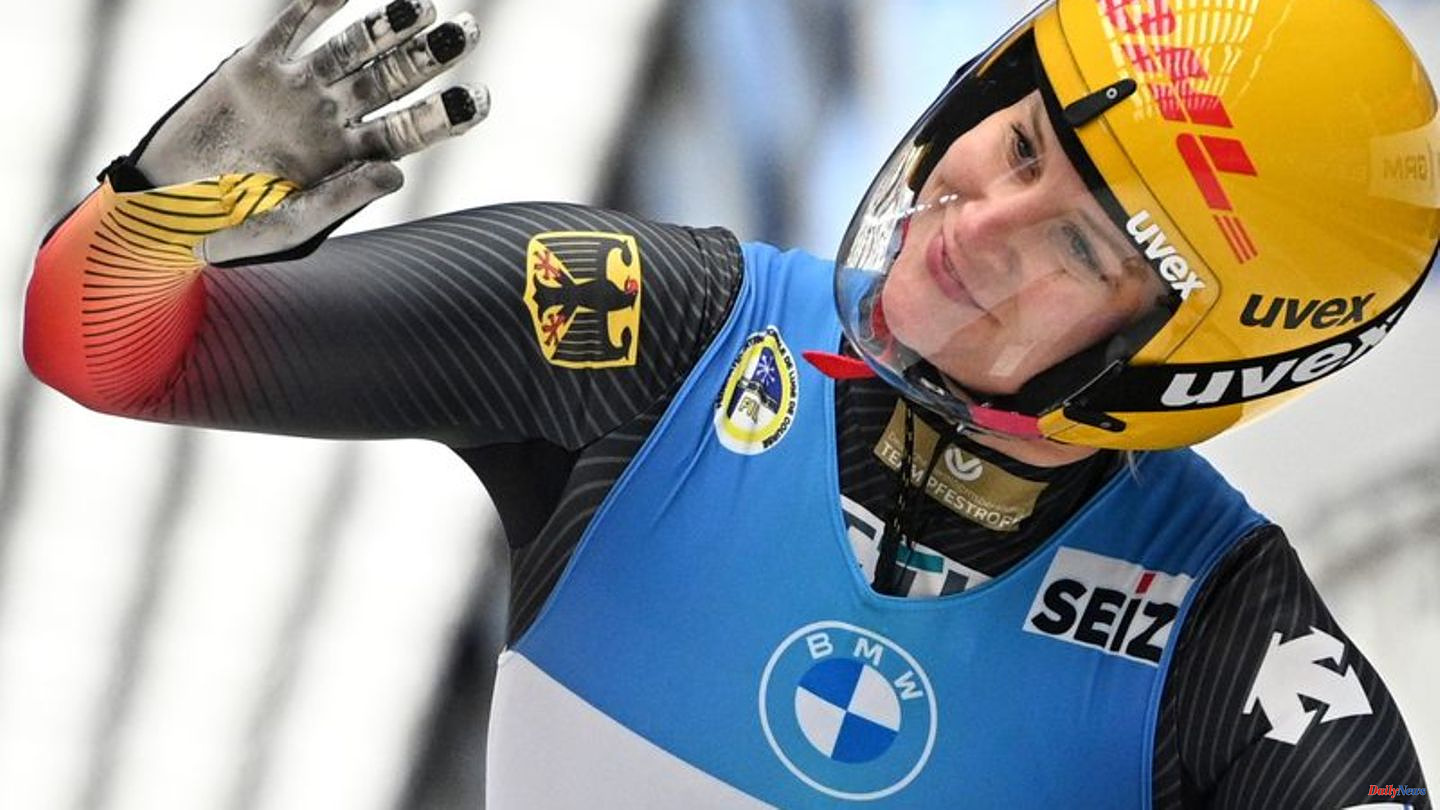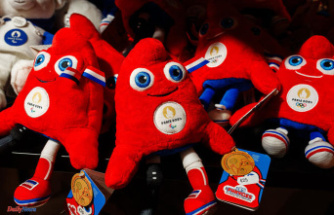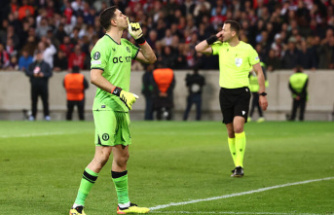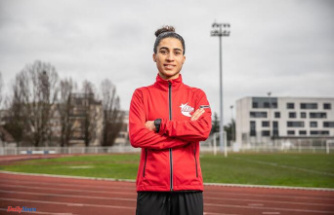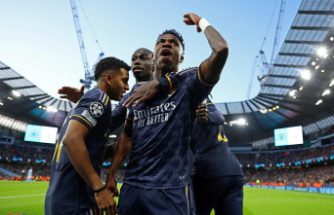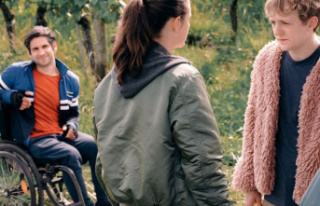For a long time it was an either/or question: either be a mother or a top athlete. When tobogganist Dajana Eitberger became pregnant, it was her partner who gave her the impetus to continue her sporting career.
"My friend said: 'I know the fire is still burning in you and if you want that, we will make it possible'," says the 31-year-old of the German Press Agency.
A number of athletes have proven that being a mother and a successful sports career are not mutually exclusive. Eitberger became a mother in February 2020 and made a successful return to the World Cup at the end of the year. Her teammate Natalie Geisenberger had her first child in May 2020 and took her fifth and sixth gold medals at the Beijing Winter Olympics that year. She is now expecting her second child, as she announced a few weeks ago.
Only recently did the mother of two, Tatjana Maria, make headlines at the tennis classic in Wimbledon with her semi-final entry. The two-time dressage Olympic champion Jessica von Bredow-Werndl even rode to the overall World Cup victory in the fifth month of her pregnancy.
Beach volleyball Olympic champion Laura Ludwig made it back to the Olympic Games in Tokyo 2021 after the birth of her first son in June 2018. In May, the 36-year-old became a mother for the second time. In September, the native of Hamburg will start her Olympia 2024 project in Paris.
"There are still caveats"
But the positive examples of mothers at the top of the sport are still the exception. "It always resonates with the idea that when I'm pregnant I can no longer do competitive sports," says Marion Sulprizio from the Cologne Sports University. "There are still caveats. When you're pregnant, bandages still treat you like you're sick." In tennis, female athletes would slide down the world rankings if they were pregnant. This could also affect sponsorship.
A well-known example is the US sprinter and six-time Olympic champion Allyson Felix. Because of her pregnancy with daughter Cammy, her sporting goods giant Nike wanted to pay 70 percent less money at the end of 2018. Felix left Nike and ran to Olympic bronze at the Summer Games in Tokyo in shoes from the company she founded.
In Eugene, where Nike was founded, the 36-year-old ended her career in July with her 19th World Cup medal. Her success for equality remains sustainable. Since the fuss surrounding Felix, Nike says it has increased payments for pregnant women.
"In America the attention is completely different"
"I think it's good that a lot more is being reported about it. It's not for nothing that Almuth Schult made a conscious decision to go to America. The attention there is completely different," says tobogganist Eitberger.
Soccer goalkeeper Schult is moving from German champions VfL Wolfsburg to Angel City FC in Los Angeles this summer. "Until now we've always been lucky that we have our parents around and they've stepped in with the little ones. That's not the case there now. On the other hand, that's exactly what the club intends to do, to support women in sport." , says the goalkeeper (31) and mother of twins of the dpa. "They have already said that there will always be a solution somehow, that we can talk about it and that they want to develop further together with me."
problem of maternity leave and parental leave
The legal situation for mothers in top-class sport is not clear. They only get maternity leave and parental leave if they are employees. "This is typically the case with top team athletes, as they are usually dependent on instructions from their club and are integrated into the club structures," explains legal scholar Philipp Fischinger.
Accordingly, the maternity protection regulations such as employment bans and the protection periods before and after childbirth would apply to them. "Individual athletes, on the other hand, are often self-employed. Then they don't have these rights," says Fischinger.
Top-class sport and becoming a mother
Regardless of the legal component, Eitberger would like female athletes not to be fundamentally exposed to the discussion that top-class sport and becoming a mother would not work. "Young girls shouldn't be afraid of the decision," says Eitberger. "You can make a conscious decision, I want to start a family and the associations should support that."
According to sports scientist Sulprizio, top athletes in the associations still have to fight against doubts after pregnancy. "Even if you've become a mother, you can call up this achievement, this attitude has to be achieved," she says. "Not this thought that the mothers first have to prove themselves again, because the technology is retained. And then you have to give the physical condition the necessary time."
Dajana Eitberger got to know herself and her body in a completely different way through training during pregnancy. The tobogganist's son is now two and a half years old. "At the moment I'm preparing for the winter. That means alternately training and having fun for my son and just normal everyday life."

